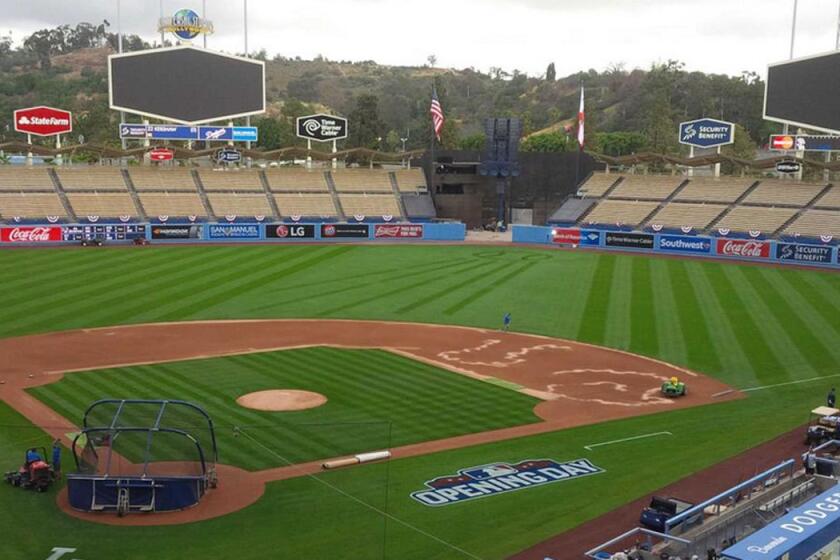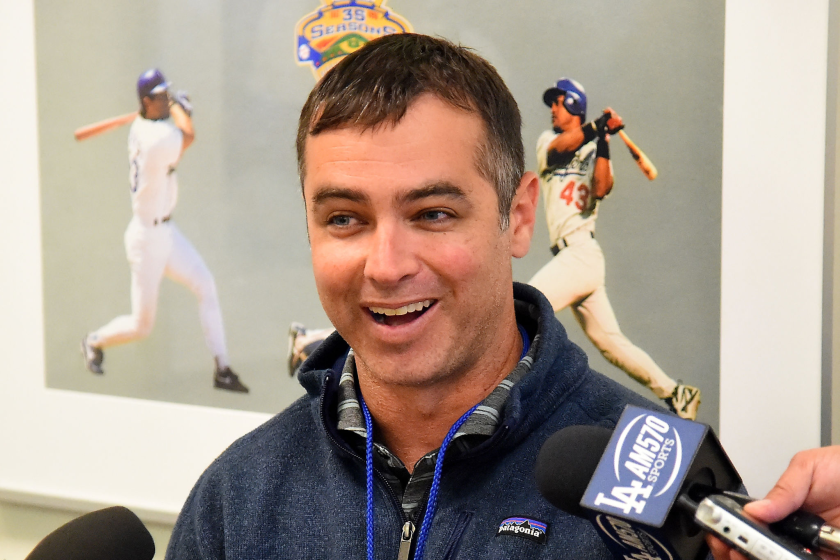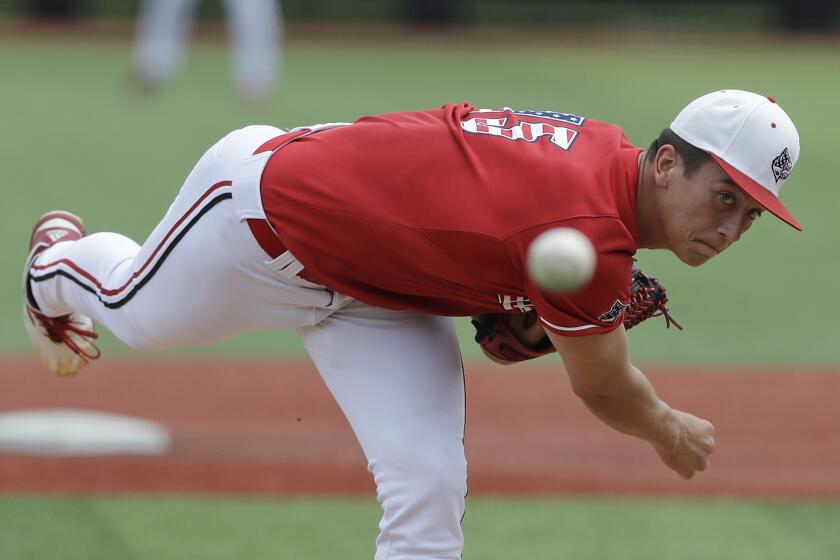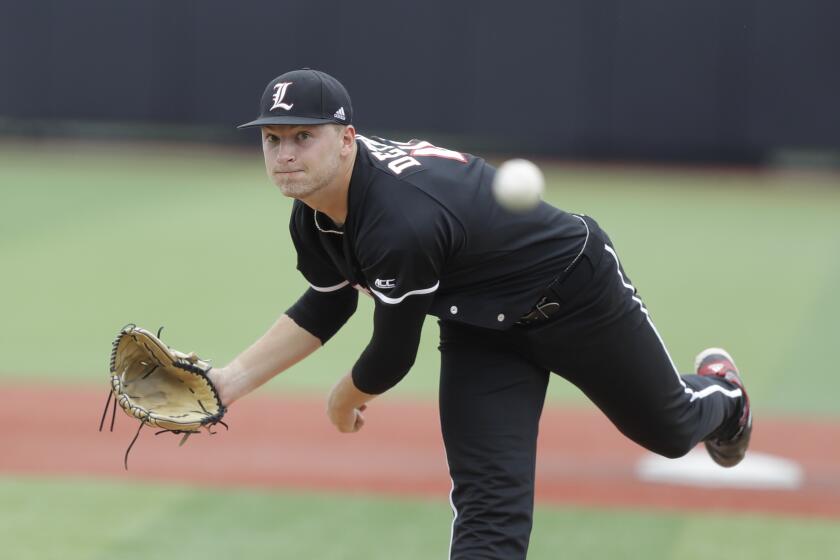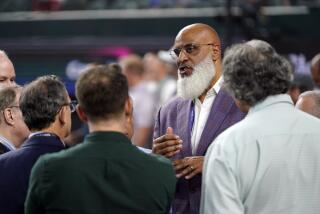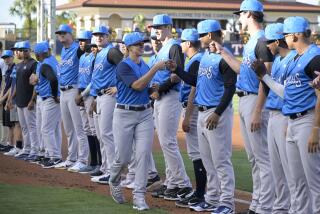MLB players tell owners negotiations are over, ask ‘when and where’ they can report
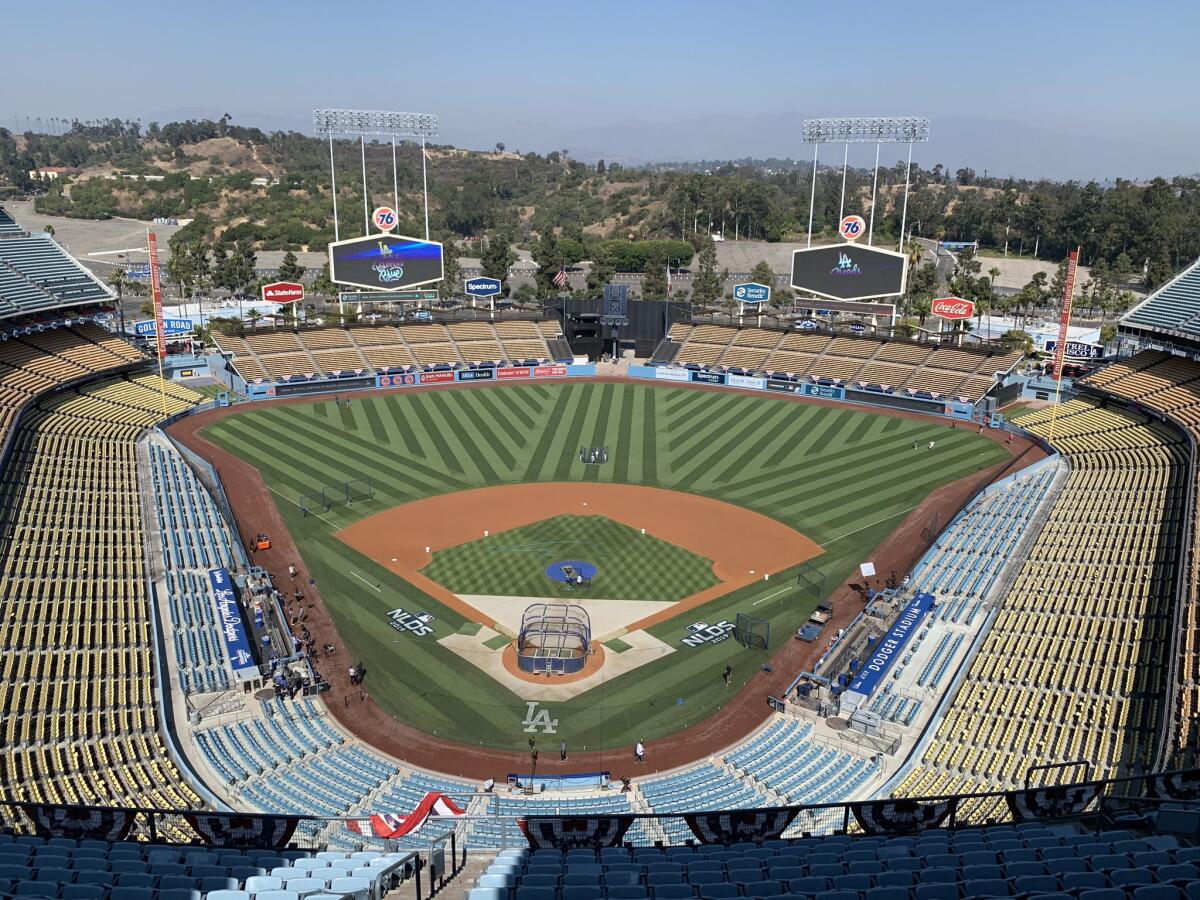
- Share via
The Major League Baseball Players Assn. on Saturday told the owners that negotiations are over, and the commissioner’s office should go ahead and dictate how long the season would be and when players should report for work.
“Further dialogue with the league would be futile,” MLBPA executive director Tony Clark said in a statement. “It’s time to get back to work. Tell us when and where.”
The union set the stage for MLB commissioner Rob Manfred to impose a short season, expected to be in the range of 50 games, and the union asked for owners to explain how they would do so by Monday. The players would play for the prorated salaries provided in a March 26 agreement and would not provide the required consent for an expanded postseason requested by the owners.
“Players remain united in their stance that a day’s work is worth a day’s pay, particularly in a situation where players and their families are being asked to take additional burdens and risks,” MLBPA negotiator Bruce Meyer wrote in a letter to deputy commissioner Dan Halem. “Given your continued insistence of hundreds of millions of dollars of additional pay reductions, we assume these negotiations are at an end.”
A spike in COVID-19 cases in the West and Southwest of the U.S. could threaten the viability of the regional alignment proposed for the 2020 MLB season.
Even if the owners impose a season, according to a person familiar with the negotiations, the two sides have yet to reach agreement on a health protocol that would cover coronavirus testing and what safety measures would be mandated at ballparks. It is possible some players would sit out, forfeiting what would be roughly one-third of their previously guaranteed salaries to play one-third of a season.
“We are disappointed that the MLBPA has chosen not to negotiate in good faith,” MLB said in a statement Saturday night.
The imposition of a season, assuming the absence of a last-minute agreement, would be followed by a grievance. That would be heard as the season plays out, with MLB arguing players did not negotiate in good faith over salary and the MLBPA arguing that owners did not negotiate in good faith over the length of the season, with the possibility that hundreds of millions of dollars could be awarded in damages.
The grievance process would lead into next year’s talks for a new collective bargaining agreement, between lead negotiators who spent the past two days trashing one another in letters. The current labor agreement expires after the 2021 season; the frigid climate between the parties increases the already substantial risk of the first MLB work stoppage (lockout or strike) since 1995.
The players had proposed a 114-game season and an 89-game season, both rejected as too long because owners were concerned about a recurrence of a coronavirus outbreak in the fall and because Fox wanted the World Series completed in October. The owners proposed seasons of 82, 76, and 72 games, all rejected because they required less than prorated salaries, and because the owners packaged roughly the same amount of guaranteed money in each deal.
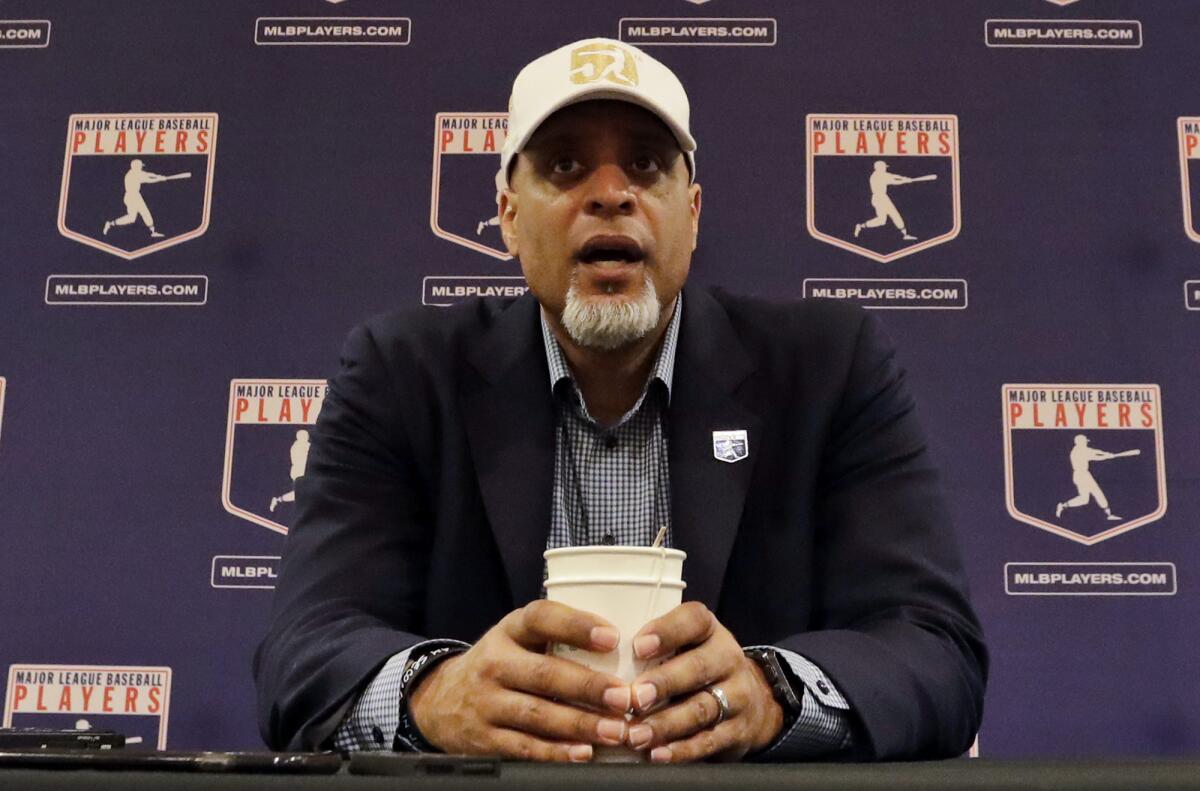
On Friday, in advocating for the 72-game season, Halem wrote that he “must have misinterpreted” the union’s willingness to engage in good-faith bargaining as part of the offer the MLBPA presented Tuesday.
“Upon reviewing the Association’s counterproposal, I stand corrected,” Halem wrote to Meyer.
The primary dispute between the parties centered around a March 26 agreement under which the owners agreed to pay prorated salaries for any games played this season. Halem and Manfred said language requiring the two sides to discuss the “economic feasibility” of fan-free games required additional pay cuts and argued that Meyer and the union knew that from bargaining sessions.
On Saturday, in rejecting MLB’s 72-game offer, Meyer cited a letter from MLB deputy general counsel Pat Houlihan that said: “We agree … players are not required to accept less than their full prorated salary.” And, Meyer told Halem: ”You did not get that language in the Agreement. In fact, it’s not surprising that in your letter you studiously avoid reference to the actual language itself.”
Meyer also told Halem that “as sophisticated and experienced attorneys yourselves,” Halem and his colleagues “cannot seriously contend” an agreement to discuss an issue equates to an agreement to pay cuts. Further, Meyer wrote, MLB had failed to provide the MLBPA with documents the union considered necessary to support the owners’ claims of the economic hardship that would compel such cuts.
With a signing-bonus cap of $20,000 and likely no minor league season, MLB teams and undrafted free agents don’t have much incentive to strike deals.
In its statement Saturday, the league said it would evaluate what it called “the union’s refusal to adhere to the terms of the March agreement.”
The league also insisted, as Halem did in his Friday letter, that “the MLBPA understands that the agreement reached on March 26th was premised on the parties’ mutual understanding that the players would be paid their full salaries only if play resumed in front of fans, and that another negotiation was to take place if clubs could not generate the billions of dollars of ticket revenue required to pay players. The MLBPA’s position that players are entitled to virtually all the revenue from a 2020 season played without fans is not fair to the thousands of other baseball employees that Clubs and our office are supporting financially during this very difficult 2020 season.”
In bargaining, the owners said their projected 2020 revenue would be $2.75 billion, down from $9.73 billion last year, with about 70% of this year’s revenue allotted to players in salaries, bonuses, and benefits.
The Dodgers continued their pattern of taking college players in the first round of the MLB draft when they selected Louisville right-hander Bobby Miller.
The players do not accept the owners’ financial representations and do not see why they should subsidize losses this year when, in the most recent years, revenues have risen as salaries have remained flat.
Halem had publicly questioned whether union leadership properly informed players about the language in the March 26 agreement, no doubt one trigger for Meyer’s contention Saturday that “without getting into all of your underhanded tactics to circumvent the union, your approach has been one delay tactic after another.”
With time of the essence for baseball to return on a timetable that would have had spring training camps open last week, Meyer wrote to Halem, “you wasted most of April and May on lobbying politicians regarding player concessions and leaking a so-called revenue sharing proposal to the media.”
The players were in particular perturbed of news Saturday that the league and Turner Sports were close to agreement on a new television rights deal. The New York Post first reported the deal; the Sports Business Journal valued the agreement at about $3.29 billion over seven years.
The Angels broke with a recent organizational trend to select left-handed pitcher Reid Detmers from Louisville.
The deal covers future seasons and not the current one, but the timing of the report was not optimal for the league, four days after the owner of the St. Louis Cardinals said: “The industry isn’t very profitable, to be quite honest.”
Nonetheless, on Wednesday, Manfred pledged on MLB Network: “We’re going to play baseball in 2020. One hundred percent.”
On Saturday, after news of the billion-dollar Turner deal broke, veteran catcher Chris Iannetta tweeted: “I guess we know why there will 100% be a season this year.”
More to Read
Go beyond the scoreboard
Get the latest on L.A.'s teams in the daily Sports Report newsletter.
You may occasionally receive promotional content from the Los Angeles Times.

